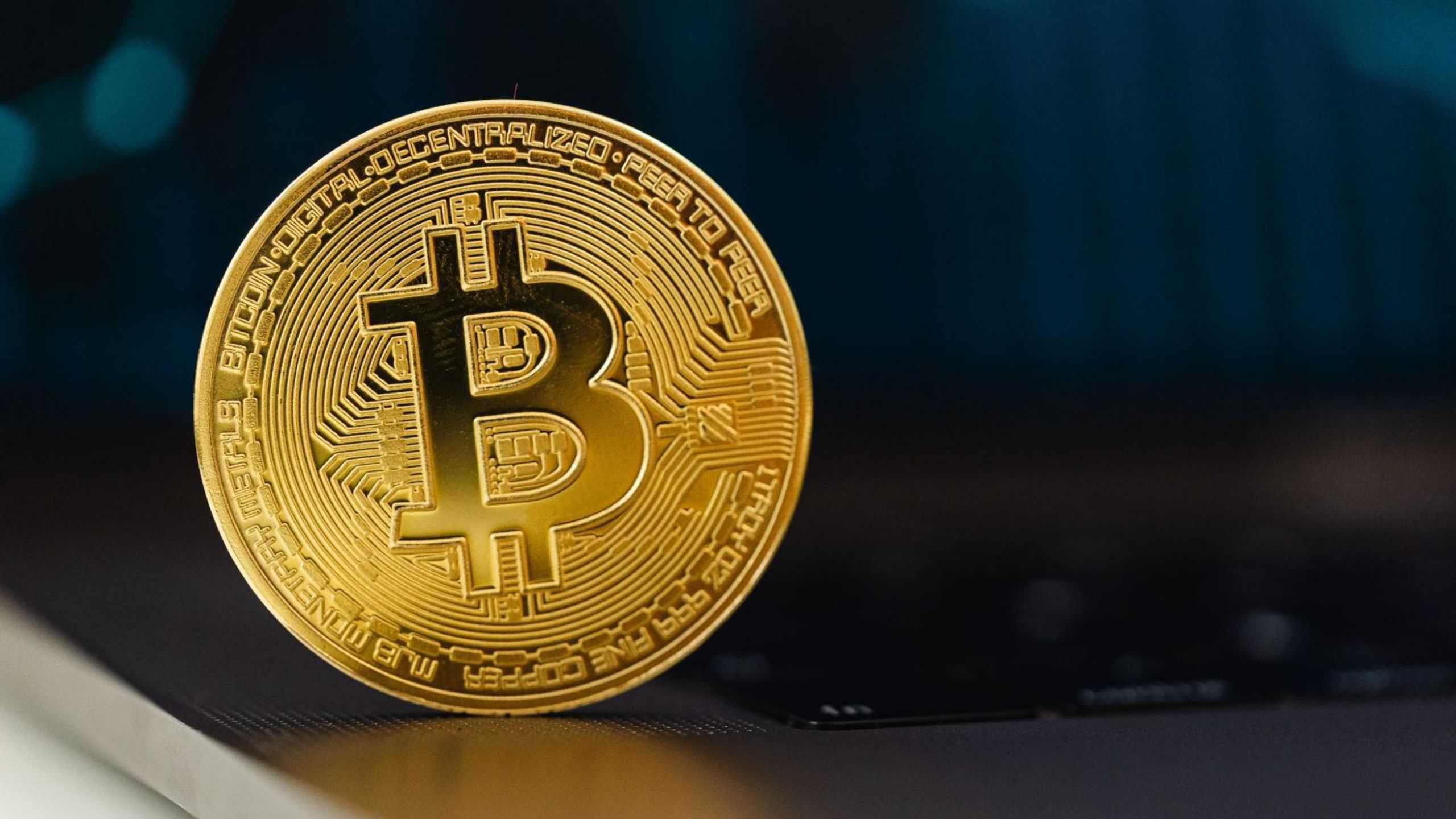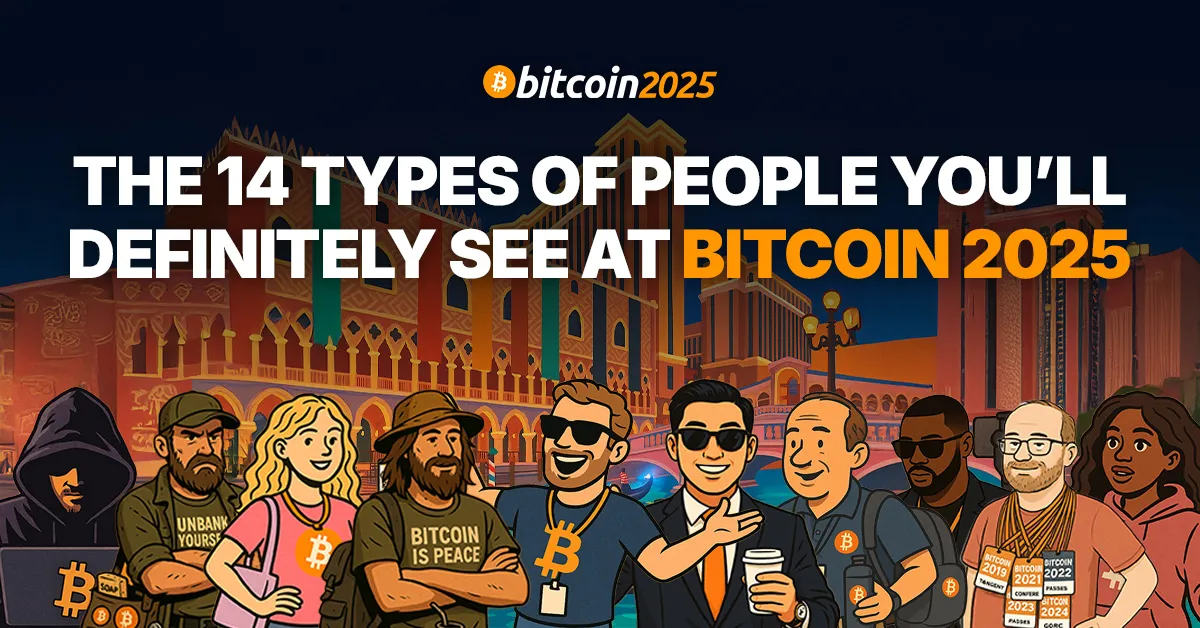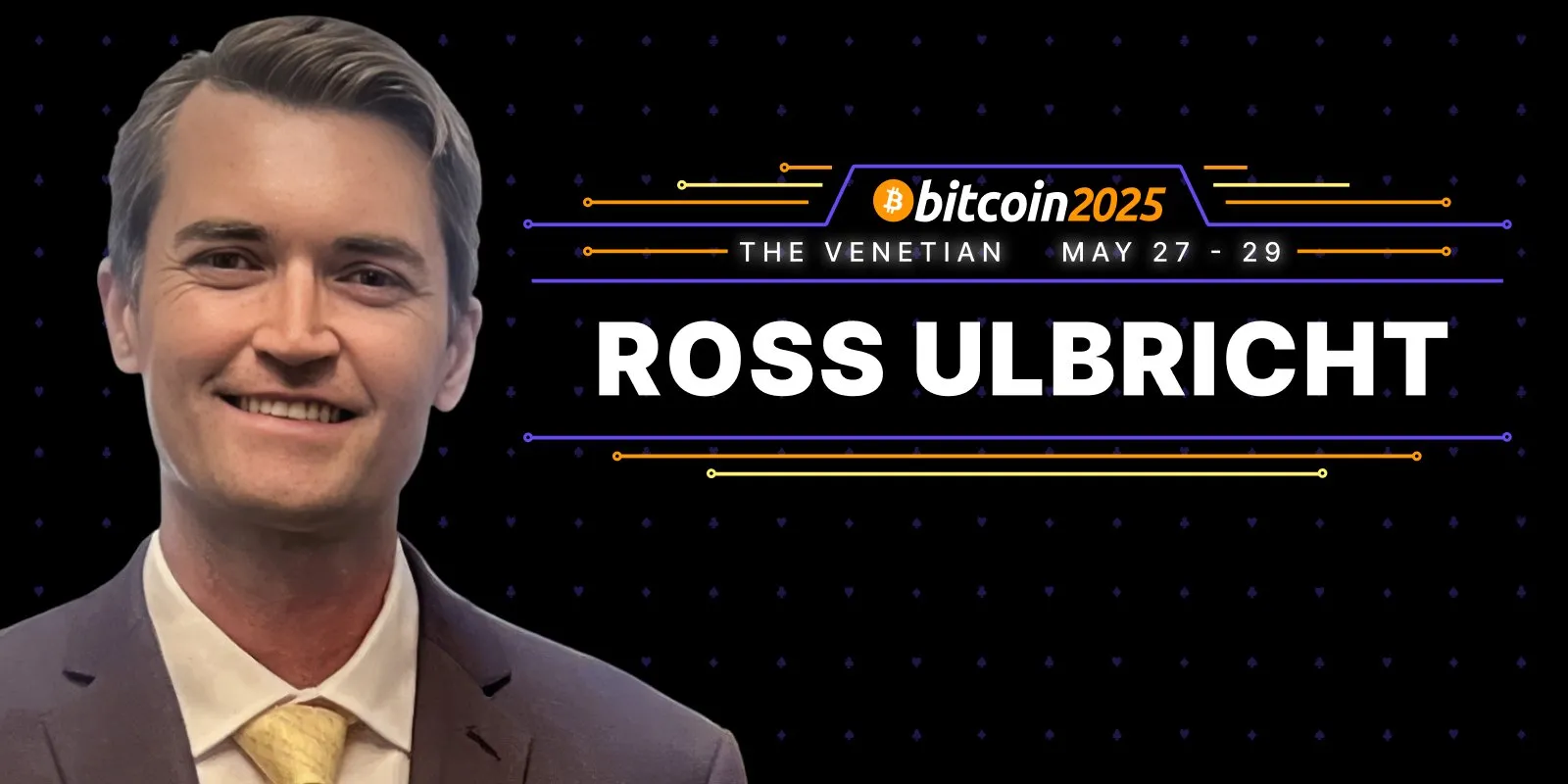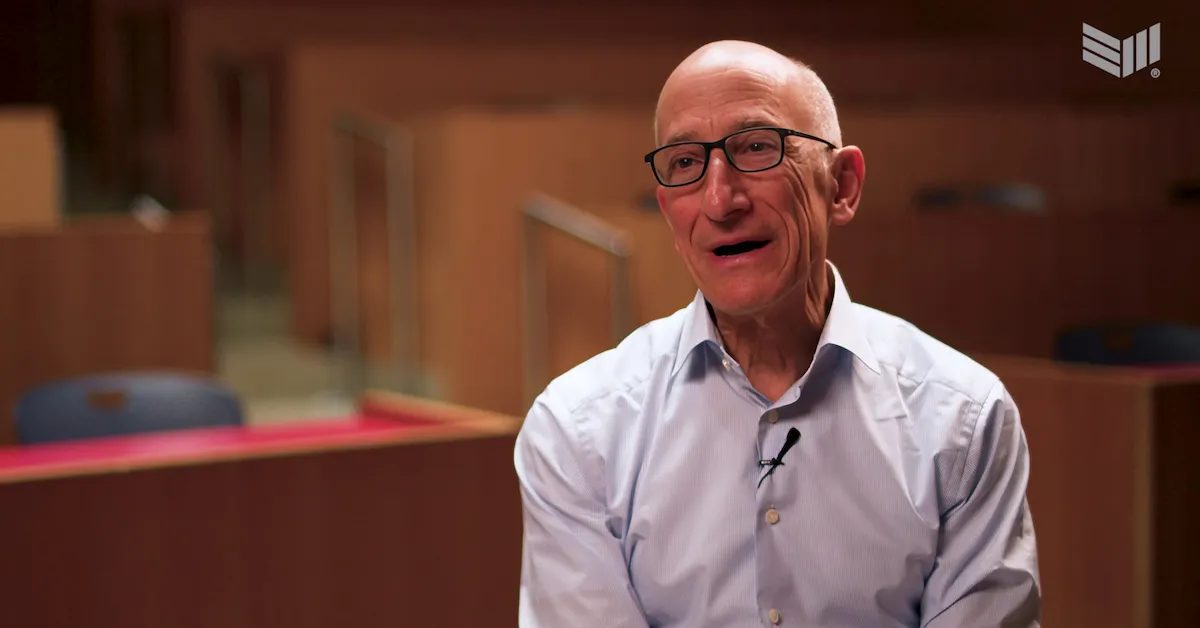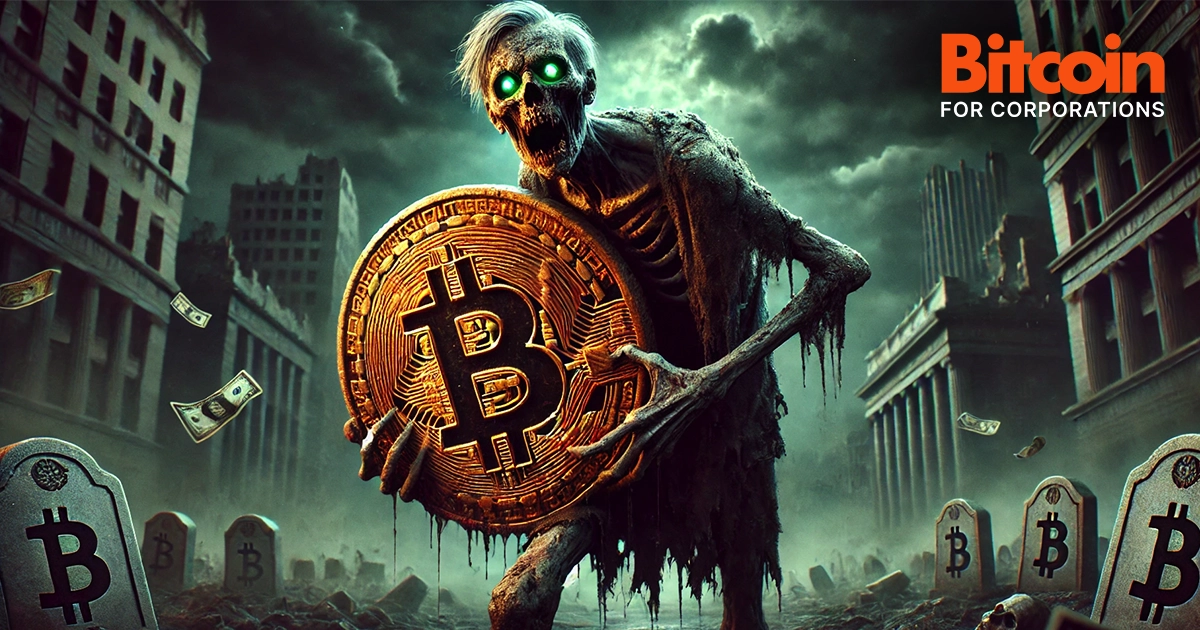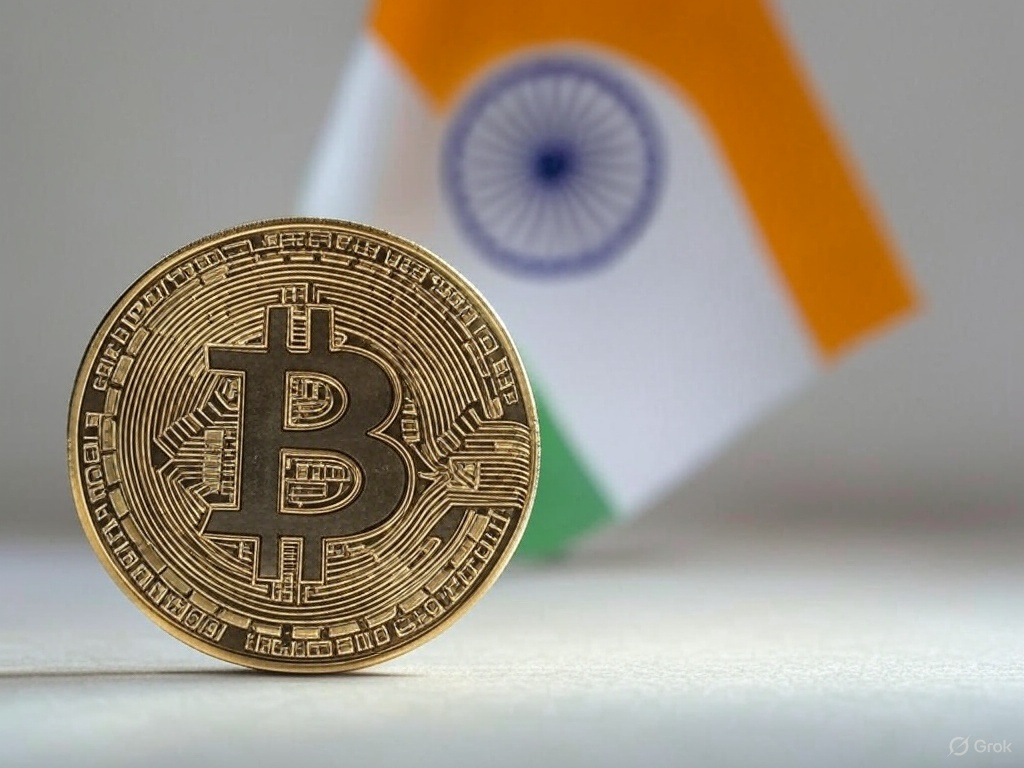Category: Crypto
On Bitcoin Privacy: More U.S. Deputy Attorney General, Less New York Attorney General
On Bitcoin Privacy: More U.S. Deputy Attorney General, Less New York Attorney General
On Monday, Deputy Attorney General (DAG) Blanche published a memo entitled “Ending Regulation By Prosecution” in which he stated that the U.S. Department of Justice will stop its crackdown on bitcoin and crypto mixers.
Here’s the exact language he used in the memo:
“…the Justice Department will stop participating in regulation by prosecution in this space. Specifically, the Department will no longer target virtual currency exchanges, mixing and tumbling services, and offline wallets for the acts of their end users or unwitting violations of regulations…”
The following day, New York Attorney General (NYAG) James co-authored a letter in which she called on congressional leaders to create federal crypto regulation, in part to prevent the use of crypto mixers for illicit purposes.
Here’s what she and her co-authors had to say about crypto mixers:
“Effective legislation must require cryptocurrency platforms to expressly comply with anti-money laundering laws, know your customer (“KYC”) regulations and cyber security protocols to prevent the use of cryptocurrency to finance terrorism, adversarial regimes, and crime. Cryptocurrency that cannot be fully traced, such as those going through money laundering mixers, must not be allowed to be converted, directly or indirectly, to U.S. dollars.”
While DAG Blanche gave the benefit of the doubt to users of Bitcoin and crypto mixers, NY AG James implied that all users of such mixers are criminals, as she refers to the technology as “money laundering mixers.”
Such language is deeply concerning to hear from the attorney general of a state — much less any lawyer — as it presumes guilt.
NY AG James has employed this type of rhetoric around Bitcoin and crypto since she assumed the attorney general role in 2018, and it’s unfair because 1.) she’s never once acknowledged that human rights and pro-democracy activists use mixers to preserve both their privacy and the privacy of their donors and 2.) U.S. citizens have a right to financial privacy.
So, as the topic Bitcoin privacy becomes more prominent in the political sphere, be sure to do your part to amplify the type rhetoric that DAG Blanche is using while pushing back on the dangerous and unjust rhetoric from the likes of NY AG James.
It’s up to us to make our voices heard on this issue and to let our elected officials know that it matters to us, especially as the Samourai Wallet and Tornado Cash cases unfold (more on both cases in the discussion below).
The fight for our right to transfer value across the internet privately is afoot. Please don’t stay on the sidelines.
This article is a Take. Opinions expressed are entirely the author’s and do not necessarily reflect those of BTC Inc or Bitcoin Magazine.
This post On Bitcoin Privacy: More U.S. Deputy Attorney General, Less New York Attorney General first appeared on Bitcoin Magazine and is written by Frank Corva.
Y Combinator Backed Theya Announces Bitcoin Solutions for Businesses
Y Combinator Backed Theya Announces Bitcoin Solutions for Businesses
Theya, a Bitcoin self-custody platform backed by Y Combinator, has launched Theya for Business, a new solution designed to help companies securely hold, manage, and operate on Bitcoin.
The platform is targeted at a broad range of organizations, including startups, mining firms, corporations, investment funds, and service providers. Theya for Business aims to simplify treasury operations by eliminating reliance on custodians and reducing the complexity of traditional multi-signature (multisig) wallet setups.
“With Theya for Business, we’ve built more than a vault—it’s your company’s Bitcoin operating system,” said Joe Consorti, Head of Growth at Theya. “Our platform is designed to scale with any team structure and workflow, giving organizations the flexibility to run on a Bitcoin standard without sacrificing control or simplicity.”
Theya’s architecture allows businesses to create single-key or 2-of-3 multisig vaults depending on their operational needs. These vaults can be used for both cold storage and day-to-day spending.
Organizations can sign up and begin setting up their vaults via the Theya for Business website. Founded in San Francisco, Theya continues to build solutions that prioritize security, transparency, and ease of use for Bitcoin users.
This post Y Combinator Backed Theya Announces Bitcoin Solutions for Businesses first appeared on Bitcoin Magazine and is written by Vivek Sen Bitcoin.
The 14 Types of People You’ll Definitely See at Bitcoin 2025
The 14 Types of People You’ll Definitely See at Bitcoin 2025
Loud. Friendly. Huggy. The Bitcoin Bro is your hype man for hyperbitcoinization. He doesn’t know what “joules per terahash” means, but he’s onboard for the vibes and will yell “Buy the dip!” during your panel Q&A.
They party hard, orange-pill harder, and are basically Bitcoin’s version of a frat brother with a bull market pump tattooed on his calf.
Want to party with the Bitcoin Bros IRL? Secure your pass to Bitcoin 2025. No halving knowledge required.
Slicker than a fresh seed phrase, this guy’s teeth are whiter than your Lightning wallet. He’s rented a Lambo for the afternoon and drops your first name way too often, like he’s trying to sell you a time-share in the metaverse.
He doesn’t care about decentralization. He cares about gains, baby. And tailoring. Always with the tailoring.
The apocalypse isn’t a threat—it’s a plan. This dude hasn’t touched fiat since 2018 and bathes in non-KYC sats. He’s already learned to make his own soap and catch fish from nearby lakes and streams.
He’s not paranoid. He’s prepared.
Come swap survivalist soap recipes with fellow plebs. Get your Bitcoin 2025 tickets now.
Lives in a van. Pays for tacos with lightning. Might be hiding from the IRS (but only spiritually). They believe Bitcoin is peace, man. And also chaos. And also freedom.
Will fix your flat tire in exchange for a hammock spot and a cold yerba mate.
The unsung hero of Bitcoin. Speaks only in thermodynamic math and SATA cable specs. Makes ASIC firmware upgrades look like wizardry, but can’t explain what he does to his mom without her crying.
Definitely knows the precise BTU-to-wattage ratio for his off-grid, solar-powered mining container. Definitely doesn’t know what “small talk” means.
Don’t understand them? That’s okay. Join us anyway—they’re building the future while you tweet.
Yes, plural. Yes, anonymous.
They don’t want to talk to you. They don’t want to be on your podcast. They don’t even want you to know they’re here. Ask them when something will be done and you’ll get the sacred prophecy: “Two weeks.”
They are the shadowy super coders that Elizabeth Warren warned you about—hunched over ThinkPads, pushing protocol upgrades that will quietly redefine monetary history. You won’t recognize them. That’s by design.
Armed with a gimbal and a dream. Their camera roll is 80% memes, 20% selfies with CEOs. Some are here to spread the signal. Some are here for the clout. All are uploading something right now.
Will say “Let’s run it back!” at least 17 times a day.
You’ll spot him by the gravity-defying stack of laminated badges swinging from his neck like a wearable timeline. He doesn’t say much—he lets the passes do the talking. Each one’s a badge of honor. Each one says: I was there.
He’s not here to attend panels—he’s here to assert conference dominance.
Collect your first pass—or your fifth. Bitcoin 2025 is calling.
Branded polo. Branded backpack. Branded soul. You don’t even know how you ended up holding his business card. He’s not here to network—he’s here to execute. He moves in packs, wears his lanyard like a badge of honor, and will be back at the booth precisely 15 minutes after lunch.
Doesn’t talk about Bitcoin. Is Bitcoin.
Old-school finance dudes who smelled the smoke from Wall Street and headed toward the orange glow. Calm. Calculated. Dollar cost averaging into the sunset.
They don’t shill. They don’t yell. They just quietly stack and nod wisely at panels.
Sleeps 3 to a hotel room and burned half their Series A to get to Vegas. They’re pitching a new Lightning wallet-slash-social network-slash-AI market prediction engine and just need one person to believe in them.
Respect the hustle.
Come meet the future of Bitcoin—before they raise your next round. Bitcoin 2025 is where legends are born.
God bless them. They’ve been standing next to their Bitcoin-obsessed partner for three straight days, pretending to understand mining pool fee structures and nodding politely through 5-hour dinner debates.
They are the backbone of the conference. The true MVPs. Probably counting down the minutes to the spa.
Not who you think. No Gucci belts. No megaphones. Just quiet confidence, a phone permanently in hand, and a passive stake in something that’s quietly revolutionizing finance.
Some got lucky. Some built empires. All will ignore your pitch deck.
The rarest sighting of all: A woman. Yes, they exist. Yes, they know more than you. And yes, they’re already five steps ahead of your “Have you heard of Bitcoin?” icebreaker.
Bonus: They’ll probably be the ones explaining immersion cooling to you.
One Event. Endless Energy. Absolute Chaos.
Bitcoin 2025 is more than a conference. It’s a decentralized carnival of code, conviction, and characters. Whether you’re here to build, learn, chill, or meme—there’s a place for you in the movement.
Don’t miss your chance to see it for yourself. Get your tickets to Bitcoin 2025 now. Vegas won’t know what hit it.
This article was inspired by the video “The People of Bitcoin 2022 Miami Conference” by SPACE DESIGN WAREHOUSE. We acknowledge and appreciate the original creative concept, which served as a foundation for this updated and expanded interpretation for Bitcoin 2025. We encourage readers to view the original video and support the creator on YouTube.
At Bitcoin Magazine, we believe in the power of open-source ideas—because great content, like great code, is better when it’s built together. If you have something you’d like to see featured—whether it’s a video, meme, sketch, or spicy take—send it our way at marketing@btcmedia.org. If we use it, we’ll give you credit in the article and share your work with the broader Bitcoin community.
This post The 14 Types of People You’ll Definitely See at Bitcoin 2025 first appeared on Bitcoin Magazine and is written by Josh Plischke.
Ross Ulbricht To Speak At Bitcoin 2025
Ross Ulbricht To Speak At Bitcoin 2025
It’s happening! Everything we’ve fought for and more; Ross Ulbricht is free and he is coming to Bitcoin 2025! Bring your “Free Ross Day One” t-shirts to Vegas because he will be in attendance at the conference for the first time as a free man, in less than two months.
“Freedom is the emancipation from the arbitrary rule of other men.” —Mortimer Adler
Freedom means a lot to us bitcoiners, so when Silk Road founder Ross Ulbricht, a freedom fighter and a Bitcoin pioneer, was given two life sentences + 40 years with no option for parole, hearts and hopes sank.
All around the world we have advocated and fought for Ross’ freedom. From petitions to t-shirts, he was all in our hearts. Ross represents us in our bravest of times in our adversity, in our fight to do what is right even when it may seem wrong.
After years of fighting, shouting, challenging, and campaigning, Trump made a promise that if he were re-elected he would pardon Ross. The question whether it would actually happen hung in the air for months. Then, on January 21st, 2025, Trump made true on his promise and it’s fair to say that it caused some commotion. Among the cheers and smiles, this moment showed us how far we have come, but is there still further to go from here?
The Bitcoin conference has always rallied the “Free Ross” movement. He’s not only one of us, but he is someone who has helped make bitcoin what it is today. We stood by Ross, and we couldn’t be more happy for him to come home.
Are you ready to create a united front that makes a future we are proud to see? Then get your tickets now for The Bitcoin Conference.
This post Ross Ulbricht To Speak At Bitcoin 2025 first appeared on Bitcoin Magazine and is written by Madeline McCabe.
Former CFTC Chairman Timothy Massad On Bitcoin And Digital Asset Privacy
Former CFTC Chairman Timothy Massad On Bitcoin And Digital Asset Privacy
While attending the MIT Bitcoin Expo this past weekend, I was afforded the opportunity to sit down with Timothy Massad, Research Fellow at the Kennedy School of Government at Harvard University and former Chairman of the U.S. Commodities and Futures Trading Commission (CFTC).
Massad served as the head of the CFTC from 2014 to 2017, and it was under his leadership that bitcoin was classified as a commodity.
In recent years, Massad has shared his thoughts on what regulation around bitcoin and digital assets should look like. He’s appeared on Bloomberg to discuss the matter, and he recently testified at the first Senate Banking Subcommittee hearing on Digital Assets.
Massad considers the need to balance user privacy when using public blockchains with the need for the U.S. government to monitor the networks for illicit activities as one the biggest challenges that regulators currently face — and he doesn’t claim to have the answer as to how this is best accomplished.
He explained that it’s important that people cannot see the balance of our funds or the entirety of our transaction history when we do something as trivial as paying for a cup of coffee with a digital asset.
In our conversation, he stated that the innovator who develops the technology that finds this balance will have found the “holy grail.”
You can watch the interview here:
This post Former CFTC Chairman Timothy Massad On Bitcoin And Digital Asset Privacy first appeared on Bitcoin Magazine and is written by Frank Corva.
How Semler Scientific (SMLR) Escaped the Zombie Zone with a Bitcoin Treasury Strategy
How Semler Scientific (SMLR) Escaped the Zombie Zone with a Bitcoin Treasury Strategy
In a recent interview with Bitcoin Magazine, Eric Semler, Chairman of Semler Scientific, shared how the company transformed its trajectory through a Bitcoin treasury strategy.
Semler Scientific (SMLR) is not your typical Bitcoin treasury company. With a strong cash position but years of underwhelming stock performance, the company turned to Bitcoin—not as a gamble, but as a strategic catalyst. What followed was a radical shift in valuation, shareholder engagement, and long-term positioning.
“We were the second U.S. public company to adopt Bitcoin as a primary treasury reserve strategy. Michael Saylor obviously is the quintessential pioneer, but we’re in that group.”
ACTIVISM MEETS BITCOIN CONVICTION
Semler joined Semler Scientific’s board just two years ago. “I became an activist on the Semler board. I wasn’t actually involved in the company until two years ago,” he said. What he found was a business generating cash but not being rewarded for it—“a zombie company,” as he put it.
“We had all this cash. It looked eerily similar to MicroStrategy in August of 2020. We had a very similar profile. A lot of cash. A lot of our market cap was in cash. We weren’t really growing.”
Rather than pursue an acquisition, Semler helped steer the company toward Bitcoin. “We needed to figure out a way to jump start our growth and we settled on Bitcoin, which was a great decision.”
A TRANSFORMATIONAL MOVE
Since announcing its Bitcoin treasury strategy, Semler Scientific has experienced a significant shift—not just in valuation, but in momentum and perception.
“Our stock at one point had quadrupled. Now it’s basically doubled… it was doing nothing for years, and it was actually going down for years,” said Semler. For a company long seen as stagnant despite consistent profitability, the Bitcoin move catalyzed a market reappraisal and brought renewed visibility to a previously overlooked business.
The internal response has been equally powerful. “Everybody’s fully on board,” Semler said. “It’s just been great to get this kind of electricity into our stock, into our company.”
What began as an activist-led effort to escape a “zombie” stock profile has become a strategic unlock. For companies with strong fundamentals but no growth narrative, Bitcoin offers more than asset appreciation—it offers signaling power, capital preservation, and a way to re-engage the market on new terms.
FROM UNDER THE RADAR TO THE SPOTLIGHT
For a company that had spent years overlooked by the market, Semler Scientific’s pivot to a Bitcoin treasury strategy didn’t just shift financial fundamentals—it dramatically raised the company’s profile.
“I had strong conviction in Bitcoin, but I had no idea what I was getting into… The entire social media aspect of it was really jolting for me,” said Semler.
A former journalist and seasoned investor, Semler is used to working behind the scenes—asking the questions, not answering them. “I’m more of an introvert. I’m not into kind of exposing myself by social media,” he admitted.
But Bitcoin has a way of changing a company’s relationship with visibility. Semler Scientific has attracted a new, vocal shareholder base, and Semler himself has become a reference point for other executives weighing the Bitcoin path. It’s not always comfortable, but it’s effective.
“At the end of the day, really what matters is that we own a lot of Bitcoin and that Bitcoin appreciates… what matters most is… that we create shareholder value.”
For Semler Scientific, Bitcoin hasn’t just altered the balance sheet—it’s pulled the company into the spotlight and into the conversation.
WHY INSTITUTIONS ARE TAKING NOTICE
While retail investors can access Bitcoin through spot ETFs or self-custody, many large institutional funds remain restricted by mandates that prohibit direct exposure. That dynamic creates a unique opening for publicly traded operating companies with Bitcoin on their balance sheet.
“Most investment funds can’t buy ETFs,” Semler explained. “For a large number of the huge funds in this country, we’re really their only way to get exposure to Bitcoin in the stock market.”
This limitation—little known outside institutional circles—has turned companies like Semler Scientific into proxy vehicles for Bitcoin exposure. And for fund managers who believe in the long-term thesis but can’t touch the underlying asset, firms like SMLR offer a rare bridge.
As more institutions seek asymmetric upside and diversified alternatives to fiat-debasing capital environments, Semler Scientific (SMLR) is increasingly part of that capital conversation—not because of what it sells, but because of what it holds.
NAVIGATING VOLATILITY
When asked what advice he would give to other companies considering Bitcoin, Semler didn’t sugarcoat it. “Just be ready for volatility. If you’re comfortable with that, know that that’s gonna be part of this experience.”
He recalled the company’s first major purchase. “We took almost all of our cash and bought Bitcoin in May. As soon as we finished buying, their news came out that Mt. Gox was doing a distribution. And I think Bitcoin just plummeted, like, 25% in a short period of time… it was a, you know, a hit to the stomach, a stomach punch.”
But instead of pulling back, they pushed forward—raising more capital and buying more Bitcoin through both ATM equity and convertible notes. “We did 100 million dollar convertible loan.”
LOOKING AHEAD
Semler believes the long-term upside goes beyond “hodling.” As infrastructure matures and institutions like JPMorgan step deeper into the space, he sees potential to leverage Bitcoin for yield and financing.
“I could see us being a kind of a Bitcoin financial company.”
For now, the focus is clear: accumulate Bitcoin, manage volatility, and unlock value where others see risk. “We’re early in accumulating Bitcoin, and we’re gonna continue to do that.”
Disclaimer: This content was written on behalf of Bitcoin For Corporations. This article is intended solely for informational purposes and should not be interpreted as an invitation or solicitation to acquire, purchase, or subscribe for securities.
This post How Semler Scientific (SMLR) Escaped the Zombie Zone with a Bitcoin Treasury Strategy first appeared on Bitcoin Magazine and is written by Nick Ward.
Global Nonprofits Form Bitcoin Humanitarian Alliance to Advance Civil Liberties and Aid
Global Nonprofits Form Bitcoin Humanitarian Alliance to Advance Civil Liberties and Aid
Today, twelve of the world’s leading human rights and humanitarian organizations gathered today at London’s Frontline Club to announce the formation of the Bitcoin Humanitarian Alliance. The coalition seeks to harness the power of Bitcoin to deliver civil liberties, support dissidents, and provide aid where traditional financial systems fall short, according to a press release sent to Bitcoin Magazine.
The Bitcoin Humanitarian Alliance website states that it “is a coalition of human rights defenders, pro-democracy movements, and humanitarian organizations using Bitcoin to advance civil liberties and humanitarian aid worldwide.”
“As a decentralized, borderless, and censorship-resistant financial tool, Bitcoin operates outside the control of governments, banks, and corporations,” further stated on its website. “This means humanitarian organizations can raise funds, move money across borders, and bypass financial repression — but only if they understand how it works, how to use it safely, and how Bitcoin differs from crypto.”
From helping political activists bypass financial censorship to enabling life-saving funds to reach crisis zones, Bitcoin has emerged as a vital tool for nonprofits operating under extreme conditions. The Bitcoin Humanitarian Alliance aims to formalize and expand this work through coordination, shared knowledge, and collective action.
Founding members include:
CANVAS (Srdja Popovic)
Anti-Corruption Foundation (Anna Chekhovich)
Voluntad Popular (Leopoldo López)
World Liberty Congress (Carine Kanimba)
Ideas Beyond Borders (Abdo Alrayis)
Democracy Lab (Noemi Boyer)
Human Rights Foundation (Alex Gladstein & Femi Longe)
Digital Citizen Fund (Roya Mahboob)
Groundswell (Hadiya Masieh)
Save the Children (Antonia Roupell)
Ríos de Pie (Jhanisse Vaca Daza)
Bitcoin Policy Institute (Fadi Elsalameen)
Collectively, these organizations span regions from Latin America to the Middle East, and their missions range from anti-corruption to child welfare. They all share a vision of Bitcoin not just as a speculative asset, but as a tool for empowerment, resilience, and access.
“Bitcoin operates outside the control of governments, banks, and corporations,” said Erik Hersman, co-founder of Bitcoin mining company utilizing hydro power in Africa, Gridless, who attended the announcement in-person today. “This means humanitarian organizations can raise funds, move money across borders, and bypass financial repression.”
The Alliance also hopes to inspire broader adoption of Bitcoin and other decentralized technologies within the nonprofit sector. As stated in its mission, it champions “a new era of philanthropy grounded in financial freedom, resilience, and global inclusion.”
For more information about the coalition and its members, visit their website here.
This post Global Nonprofits Form Bitcoin Humanitarian Alliance to Advance Civil Liberties and Aid first appeared on Bitcoin Magazine and is written by Nik.
India’s Leading Bitcoin And Crypto Exchange Unocoin Integrates Lightning
India’s Leading Bitcoin And Crypto Exchange Unocoin Integrates Lightning
Unocoin, one of India’s longest-standing bitcoin and crypto exchanges, has announced the successful integration of the Lightning Network, a second-layer protocol designed to enable fast and low-cost bitcoin transactions. The integration is powered by Voltage, a U.S.-based infrastructure provider known for its enterprise-grade Lightning solutions.
This development marks a significant step forward for bitcoin utility in India, especially in the context of rising demand for scalable and cost-effective transactions. By adopting the Lightning Network, Unocoin aims to offer its users instant bitcoin settlements and, in the near future, Tether (USDT) transfers via the same network.
“We continuously seek ways to improve transaction efficiency and cost-effectiveness for our users. With the Lightning Network, powered by Voltage, Unocoin is enabling the fastest, lowest-cost bitcoin and Tether transfers,” said Sathvik Vishwanath, CEO of Unocoin.
Unocoin’s move comes at a time when the Indian crypto landscape continues to face regulatory headwinds. While several exchanges have scaled down or exited the market, Unocoin has remained resilient, maintaining operations and user trust. The exchange’s adoption of Lightning technology reinforces its position as a leader in innovation within the country’s bitcoin and crypto sector.
“The Lightning Network represents a revolutionary leap in bitcoin scalability, enabling fast, secure, and cost-effective transactions,” said Graham Krizek, CEO and Founder of Voltage. “By partnering with Unocoin, we aim to bring these benefits to millions of users in India, fostering greater adoption and utility of bitcoin in daily transactions.”
This post India’s Leading Bitcoin And Crypto Exchange Unocoin Integrates Lightning first appeared on Bitcoin Magazine and is written by Vivek Sen Bitcoin.
Israel’s New Study Shows 51% of Public is Interested in Adopting CBDC (Digital Shekel) – Is That So?
Israel’s New Study Shows 51% of Public is Interested in Adopting CBDC (Digital Shekel) – Is That So?
On April 1st, at the KPMG offices in Tel Aviv, several dozen people gathered for a meeting of the “CBDC IL Forum” to hear representatives from academia, the Bank of Israel, and KPMG present findings from a study conducted by the Bank of Israel through “Roschink” research institute. The study included around 1,000 participants, and the results were published on the Bank of Israel’s website. In this article, I will review key points from the meeting, comment on the research published by the Bank of Israel, and share what I had said to attendees at the end of the forum meeting.
The CBDC IL Forum’s meeting brochure
Study: The Israeli Public’s Willingness to Adopt a Digital Shekel
Dr. Nir Yaacobi from the Digital Shekel team at the Bank of Israel shared that participants in the study were randomly selected and represent all population segments. “The research institute works with these individuals, and they are paid for their participation,” he said. The amount paid was not disclosed. Prof. Ruth Plato-Shinar, one of the study’s authors, mentioned that the questionnaires were in a digital format. She noted that even people with very basic phones could participate, but acknowledged that those without any digital access likely did not participate and probably don’t understand what a digital shekel is.
Analysis of the study document reveals several methodological issues:
Sampling method: An online panel was used, meaning participants were already enrolled in digital survey platforms—potentially biasing the sample toward tech-savvy individuals and skewing attitudes about a digital currency.
Sample representation: The random sampling underrepresented certain groups, especially Arab citizens. Reweighting was used to correct this by doubling responses of some participants, potentially compromising authenticity.
Risks such as loss of privacy, government overreach, and impact on cash economies may be underrepresented due to a bias toward digitally-inclined respondents.
Participant dropout: 115 participants dropped out between the first and second questionnaires, which may indicate a selection bias—those more interested in the topic stayed on.
Despite efforts to ensure a representative sample, these methodological limitations may affect the study’s validity.
Avoiding Disclosure of Digital Shekel Risks
At the end of the meeting, I spoke critically about the partial and mainly positive information presented to study participants and the CBDC IL Forum attendees. The public wasn’t exposed to potential risks and limitations of such a system, which I’ve elaborated on in many of my keynote speeches, articles and podcasts.
The following video shows that the way the digital shekel was presented to study participants was lacking. The description of the digital shekel and its system focused on the advantages, as read by Prof. Plato-Shinar at the CBDC IL forum meeting:
In addition, the study does not comprehensively address potential risks for end users—such as the possibility of state control over financial behavior, loss of privacy, asset seizure, use of the currency as a surveillance tool, restricted access to funds due to regulatory decisions, and more. The lack of emphasis on these risks is especially problematic for individuals concerned about government overreach and privacy violations, but also for those who are simply unaware of the potential dangers and their implications.
The study does mention:
Limited privacy claims: It is stated that “the central bank will not have access to identified information about balances and transactions in users’ wallets,” but also that privacy levels will be defined according to user type—which implies that privacy is not absolute.
Enforcement capabilities and restrictions: “The system will support the implementation and enforcement of restrictions” on wallet balances, which could indicate the potential for usage limitations. The digital shekel is being designed with technical capabilities to impose limits on wallet balances—meaning it will be possible to define how much money a person is allowed to hold in their digital wallet and monitor that in real time. Although the document does not specify who would be authorized to enforce these limitations, the mere existence of enforcement capabilities indicates a control mechanism that could theoretically allow freezes, blocks, or other restrictions on usage—raising questions about financial freedom, privacy, and institutional power.
Government control: The Bank of Israel will be “the sole authority empowered to issue and redeem the digital shekel,” meaning there will be no decentralized alternatives like cryptocurrencies such as Bitcoin.
Implications for Cash-Based Communities
The study does refer to the level of interest among different population groups and notes that among the ultra-Orthodox community, interest in the digital shekel is among the lowest. However, it does not explicitly discuss the consequences of transitioning to a digital currency for communities that rely heavily on cash. The digital shekel may pose a significant challenge to these groups if cash usage is eventually curtailed.
Possible reasons for low interest among the Haredi (ultra-Orthodox) community:
Clear preference for cash: Most Haredim use cash due to privacy concerns, a desire to avoid dependence on banks, and some hold traditional opposition to modern financial systems.
Digital literacy gaps: Financial digital literacy in parts of the ultra-Orthodox community is lower than the general population.
Fear of regulatory control: Cash offers a degree of economic independence, whereas a digital shekel may increase government control over payments.
Senior Citizens
In 2023, the Israeli Internet Society conducted a survey among Israelis aged 65 and older. It found that approximately 30% do not use the internet at all, and “it can be said that at least some of them have not bridged the access gap.” This population segment (60+) comprises around 25.3% of Israel’s total population (data from 2020). This is another example of a group whose access to technology is limited—and therefore will likely also be limited in their ability to use a digital shekel.
Since the study was conducted digitally, that 30% segment of this population likely was not represented in the sample. That said, only 13% of the study participants were aged 60+ (13% in the first survey and 12% in the second), meaning people aged 60 and over were underrepresented in the sample—at about half their proportion in the general population.
This raises several concerns:
Digital exclusion: A significant portion of those aged 65+ simply could not participate in the survey.
Overestimated tech readiness: If only elderly people with digital skills participated, the study may overestimate interest among the elderly.
Accessibility gaps: People who struggle with technology may also struggle to use the digital shekel—but their perspectives were not captured.
All of these factors may introduce bias that should be taken into account when interpreting the findings. To achieve a more accurate picture, the researchers could have incorporated other research methods (such as phone or in-person interviews) to reach those without digital access.
What’s New in the World of CBDCs
At the meeting, Ben Benakot of KPMG Israel presented developments in the CBDC space. He noted that most countries in the world are exploring CBDC solutions at various stages, and that 65 countries are in advanced research stages.
One case study he presented was Brazil, where the central bank launched the PIX retail payment system during the COVID-19 period. It saw rapid adoption. Today, Brazil’s central bank is working on DREX, a wholesale CBDC system, and has completed a collaboration with Meta to enable payments via WhatsApp using PIX.
Ben pointed out that no advanced Western countries have launched CBDC systems yet—likely one reason the Bank of Israel is not rushing to make a decision. The Bank of Israel has previously stated it is monitoring the EU central bank as a model.
Balancing the Narrative on the EU and China
In my closing statements at the CBDC IL forum meeting, I also referred to a study conducted recently in the EU with less than flattering results; This study was clearly not mentioned by any of the forum’s experts. I found it important to balance the overly positive narrative and bring the following to attendees’ attention:
On March 12, the European Central Bank (ECB) published a working paper titled “Consumer Attitudes Toward CBDC,” surveying approximately 19,000 respondents across 11 Eurozone countries. The report highlighted significant communication challenges that are expected to hinder adoption of the digital euro. It found that Europeans show little interest in a digital euro, strongly prefer existing payment methods, and see no real added value in a new payment system given the many alternatives.
Nevertheless, the European Central Bank recently announced that it will begin the rollout of the digital euro in October 2025, pending regulatory approvals.
Read more about the EU’s CBDC plans in my recent article, ECB Prepping the Ground for Digital Euro Launch.
Furthermore (at the CBDC IL meeting), I went on to explain that the high adoption rate of the CBDC in China is not necessarily a result of public enthusiasm, but rather of a top-down market strategy led by the central bank—a “If you can’t beat them, join them” approach. In the early years of the e-CNY (China’s CBDC), the project was considered a failure due to low adoption. Eventually, the central bank instructed major retail and tech companies to integrate e-CNY into their most popular apps (DiDi, Meituan, Ctrip, WeChat Pay, and Alipay)—a move that enabled wide adoption. Today, the e-CNY has about 180 million digital wallet users and a cumulative transaction volume of $1 trillion.
The Trust Factor
70% of Israel’s study participants expressed trust in the Bank of Israel. At the meeting, Ben Benakot of KPMG commented on the trust issue: “If we don’t trust the government, this becomes a problematic issue, because theoretically, CBDCs give the state more data.” Benakot noted that although the Bank of Israel is designing the system so that it won’t have direct access to user information—only authorized payment providers will—there’s no guarantee that a future government won’t change the system and gain direct access to accounts and personal data.
He also mentioned that today, for example, the Israeli tax authority already has the ability to monitor financial data on citizens (albeit not immediately or directly due to oversight). In theory, the digital shekel is not very different.
Public Awareness and Messaging
Another point I raised at the meeting was the Bank of Israel’s responsibility to inform the public in a fair, honest, and balanced way. I asked: if the Bank truly seeks to understand the public’s willingness to adopt the digital shekel—why hasn’t it launched a nationwide campaign like it did during Covid-19, when the government mobilized all its resources to educate the public through experts, influencers, media, social platforms, billboards, and more?
Why, unlike during Covid, isn’t the Bank of Israel making an effort to present the full picture—including the risks and downsides—not just the flattering, positive aspects?
As someone with about 20 years of experience in marketing, I also pointed out the haste with which the Bank moved from releasing the study and press announcement, to publishing a post the very next day (!) on social media (Instagram, Facebook) stating: “51% of the public wants a digital shekel.”
Every beginner marketer knows that when you highlight the yes, you obscure the no. Yes, there’s interest—but what about the other 49%?
The post read: “Most of the public sees the benefits: easy to use, convenient, and protected from fraud.” Most of the public? Based on a 1,000-person study where 51% expressed interest?
It also states: “No final decision has been made, but it seems the future is already here.” That sounds like the decision’s already been made—only the launch date is missing.
Conclusion
Dr. Nir Yaacobi from the Bank of Israel’s Digital Shekel team said at the meeting: “We’re entering uncharted territory, and we don’t currently have a strategy”—referring to which digital financial solution will be chosen in Israel.
“We’re working on three fronts: a digital shekel (CBDC), stablecoins, and tokenized commercial bank deposits.” He added: “Maybe we’ll go with one solution—like the digital shekel—or maybe all three. If we launch a wholesale CBDC, legislation likely won’t be needed. If it’s retail—yes.”
After I finished my remarks, Assaf David-Margalit from the Digital Shekel team responded and said that some of what I said was accurate—but most of it was not. When I asked what wasn’t accurate, I received no response. My invitation to Mr. David-Margalit to respond with specific clarifications remains open.
To conclude: I believe it is vital to raise public awareness around the digital shekel, because clearly “the future is already here.” For that reason, it is essential to openly present both the risks and benefits of a digital shekel system so that an informed public can participate meaningfully in the conversation and make relevant choices about their lives.
This is a guest post by Efrat Fenigson. Opinions expressed are entirely their own and do not necessarily reflect those of BTC Inc or Bitcoin Magazine.
This post Israel’s New Study Shows 51% of Public is Interested in Adopting CBDC (Digital Shekel) – Is That So? first appeared on Bitcoin Magazine and is written by Efrat Fenigson.
Senate Confirms Pro Bitcoin Paul Atkins As SEC Chair
Senate Confirms Pro Bitcoin Paul Atkins As SEC Chair
The U.S. Senate has confirmed Paul Atkins as the new Chair of the Securities and Exchange Commission (SEC) in a 52-44 vote, placing the longtime Wall Street consultant and former Republican commissioner at the helm of one of the most powerful financial regulatory agencies in the country.
Atkins, known for his deregulatory stance, is expected to usher in a bitcoin and crypto friendlier approach at the SEC, reversing many of the enforcement-heavy policies implemented under his predecessor Gary Gensler. His confirmation follows months of political debate and comes during a period of significant transition in U.S. financial regulation.
A vocal critic of what he has described as “regulatory overreach,” Atkins has previously advised several crypto firms through his consultancy Patomak Global Partners. Industry insiders see his appointment as a turning point for bitcoin and crypto in the U.S., particularly as the agency redefines its jurisdiction.
Senate Banking Committee Chairman Tim Scott (R-S.C.) applauded Atkins’ confirmation, stating on Wednesday that “His tenure will mark a pivotal moment to roll back harmful Biden-era policies, promote capital formation, and enhance opportunities for retail investors.” “Chairman Atkins will also provide regulatory clarity for digital assets, allowing American innovation to flourish, and ensuring we remain competitive on the global stage,” Scott said.
Since taking office, the Trump administration has already directed the SEC to scale back its crypto oversight. Under interim Chair Mark Uyeda, the agency dismissed a number of high-profile bitcoin and crypto cases and issued internal guidance excluding several crypto categories.
With Atkins now confirmed, those changes are expected to be formalized into long-term policy. Insiders suggest Atkins will work closely with the Commodity Futures Trading Commission (CFTC) to implement a more unified framework for bitcoin and crypto, potentially paving the way for Congressional legislation that redefines how crypto is regulated in the U.S.
This post Senate Confirms Pro Bitcoin Paul Atkins As SEC Chair first appeared on Bitcoin Magazine and is written by Vivek Sen Bitcoin.

